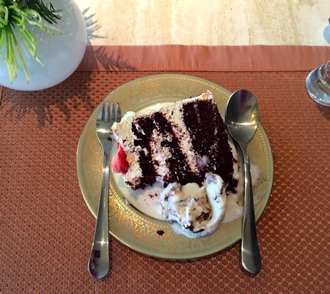How to Use the American and
Continental Dining Styles
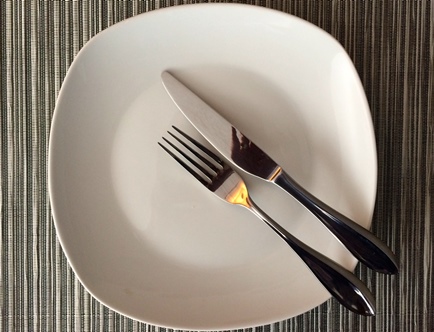 Image Source: Candace Smith Etiquette
Image Source: Candace Smith EtiquetteThe American and Continental dining styles are two different approaches to using utensils during meals. Here is a brief overview of each.
American Dining Style:
- The fork is held in the left hand, tines facing down, to hold food while cutting.
- The knife is used in the right hand to cut food.
- After cutting, the knife is placed on the plate, and the fork is switched to the right hand to eat.
- This process is repeated as needed throughout the meal.
Continental Dining Style:
- The fork remains in the left hand throughout the meal, tines facing down.
- The knife stays in the right hand.
- Food is cut and eaten without switching hands.
- The fork is used to pick up food and bring it to the mouth, still in the left hand.
The main difference is that the American style involves switching the fork between hands, while the Continental style keeps utensils in the same hands throughout the meal.
The Four Steps of the American Dining Style
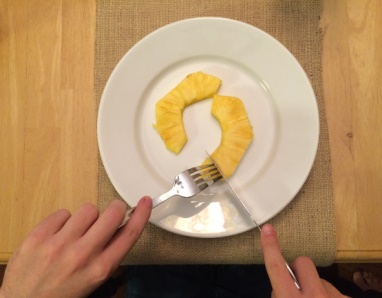
Step 1
With the fork in your left hand and knife in your right hand, cut your food. The left index finger is placed on the back of the fork with the handle end in the middle of your palm. The index finger of your right hand is placed on the top edge of the knife at the juncture between the blade and the handle.
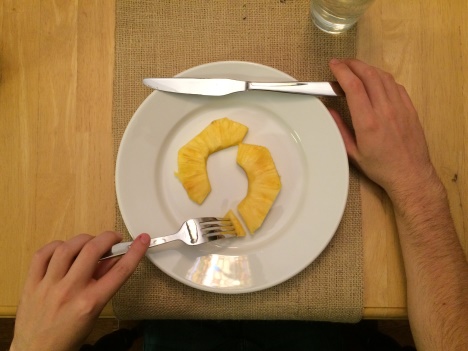
Step 2
Keeping your fork in place in your hand, lay the knife at the top of the plate. Make sure the blade edge is facing you. (It is considered an affront to other diners to point your blade at them.)
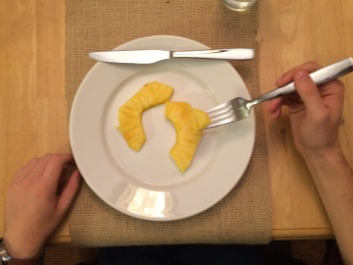
Step 3
Now that your right hand is free, switch the fork from the left hand to right. Holding the fork like a pencil, place the bite onto the fork. Move your left hand to your lap.
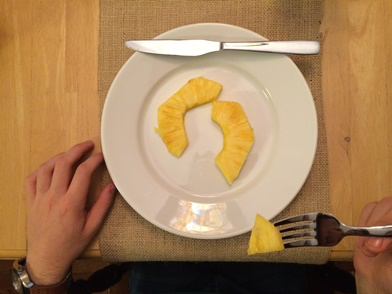
Step 4
Bring the fork to your mouth and enjoy the bite! (Do remember to keep your left hand off the table, though if you're left-handed, there is a tendency to move it onto the table--maybe to be ready in case it's needed.)
The Continental Dining Style
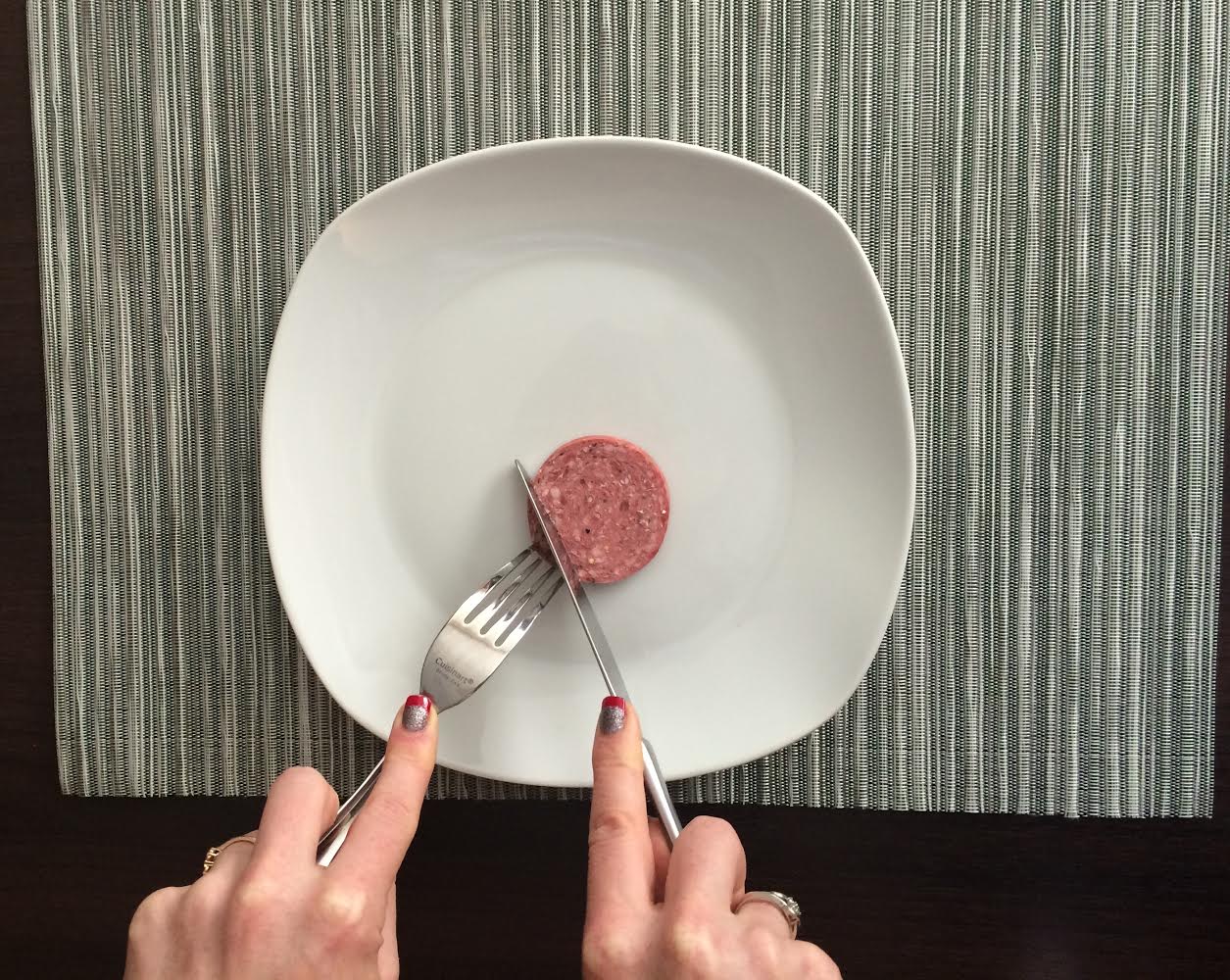
Step 1
With the fork in your left hand and knife in your right hand, cut your food. Notice the placement of the left index finger on the back of the fork. And notice the right index finger is placed at the juncture between the backside of the blade and the handle.
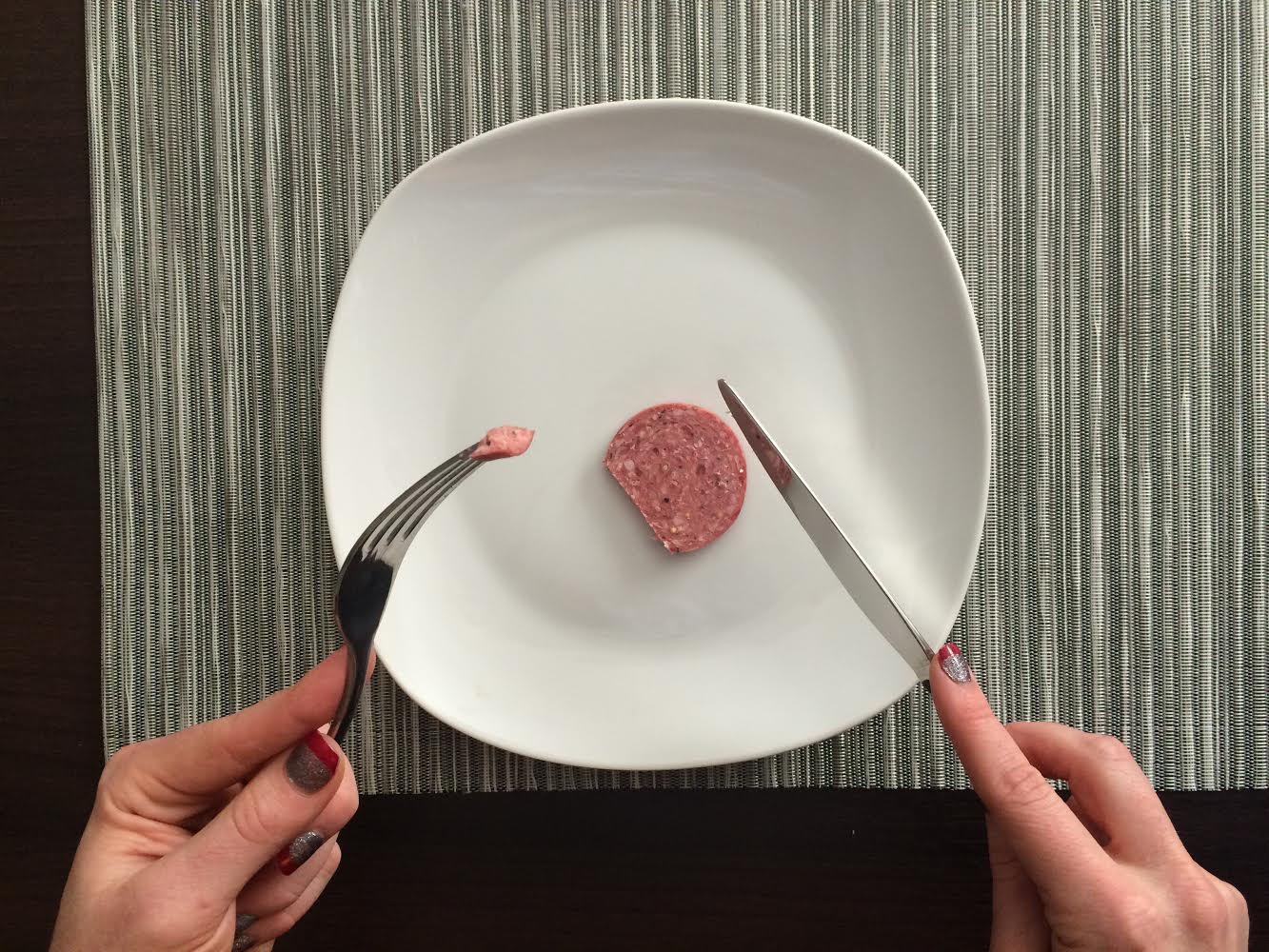
Step 2
With your fork in your left hand, bring the food directly to your mouth, tines down, and enjoy the bite. The knife can be used to push food onto the back of the fork. When it's temporarily not in use cutting or pushing, hold the knife steady by placing your right wrist on the edge of the table.
Taking a Break...Resting Position
If you need to pause during the meal - maybe you'd like a sip of water or want to say something to someone at the table - you will need to place your utensils in resting position on the plate to indicate your pause. Utensils in either of these positions tell your server that you are not finished with your meal, and they should not remove your plate.
American Dining Style
With your knife already resting at the top of your plate, place your fork in the four o'clock position on the plate.
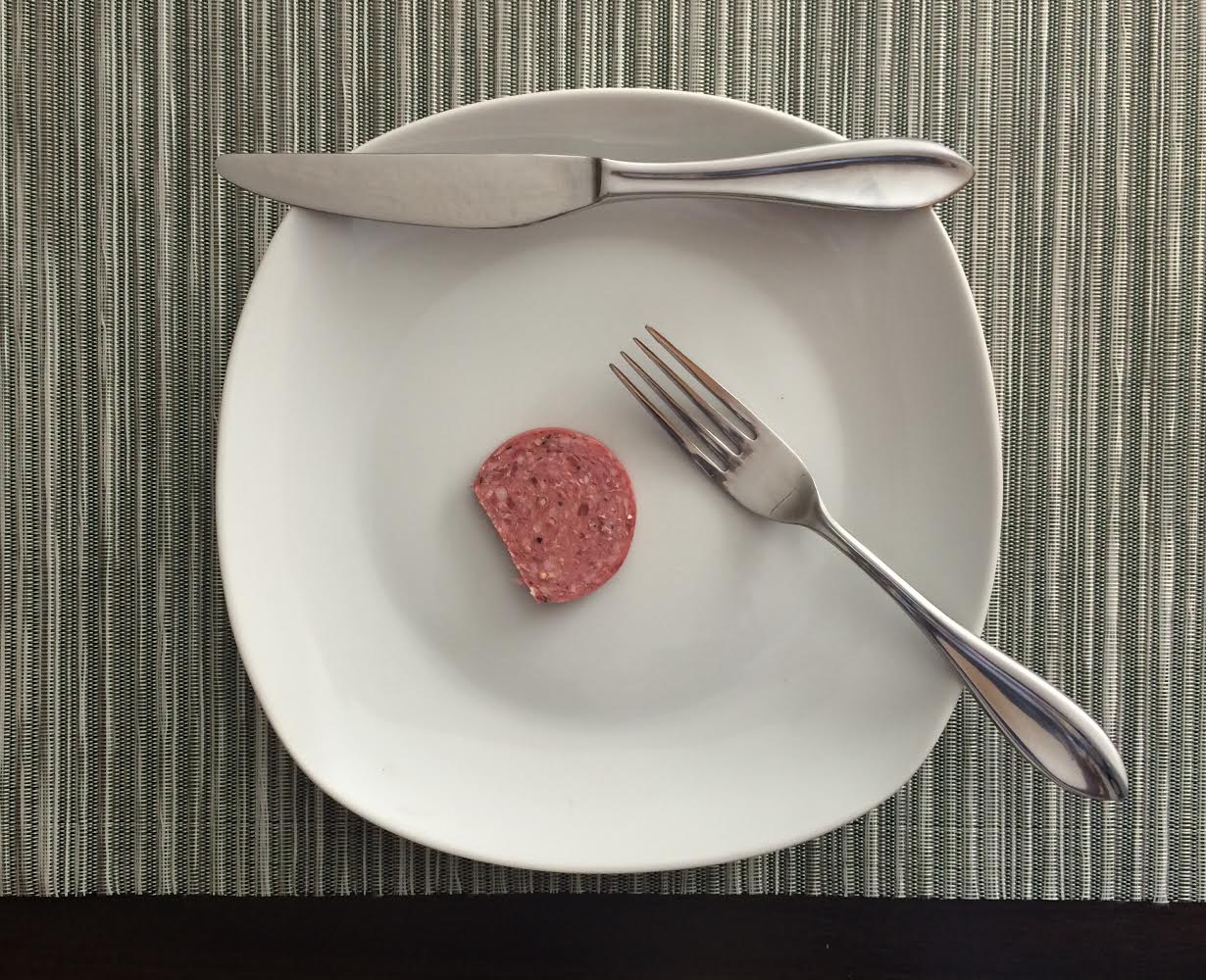
Continental Dining Style
Place your fork and knife in diagonal positions on each side of your plate--in an upside-down "V."
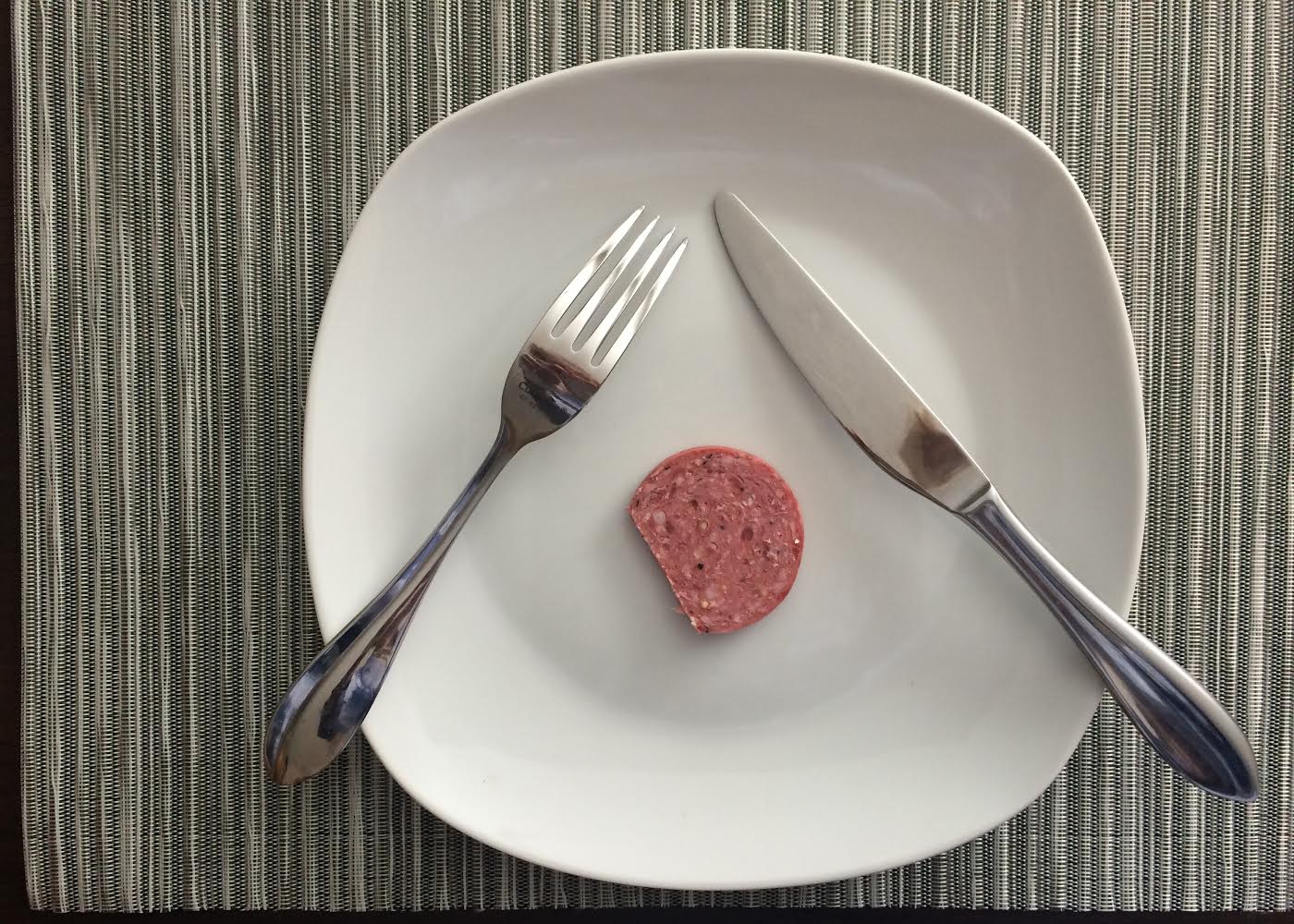
Finished With Your Meal...Close-out Position
When you are ready for your plate to be removed from the table, there is a utensil placement that signals this as well. You are conveying to your server, "I have finished."
Lay your fork and knife side by side at the four o'clock position on your plate. (A 6:30 o'clock parallel position is also considered proper close-out.)

For Left-handed Folks
Being left-handed has its challenges when it comes to eating American style. Most left-handed individuals choose to make a simple modification to the system described above, with the adjustment in the third and fourth steps.
How to do it:
- Cut with the knife in the right hand and fork in the left hand. (First, position the knife handle in the palm of the right hand and the fork positioned in the palm of the left hand.)
- Place the knife at the top of the plate as demonstrated above, with the blade facing in.
- Keeping the fork in the left hand, ROTATE it as if you were holding a pencil.
- Bring the fork to your mouth with the left hand, fork tines facing up.
Which Style is Your Favorite?
Used in knife and fork countries around the world, including the U.S., the Continental dining style is simple to learn and easiest to use. Left-handers often prefer this style, as their dominant hand is in use throughout the meal.
In fact, most people attending my dining classes prefer the Continental dining style as they feel they have more control of the utensils used during the meal. I encourage you to practice both, and let me know which is your favorite.
